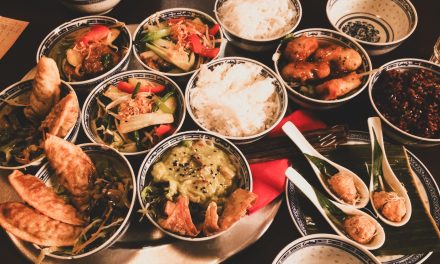In the heart of Istanbul, where East meets West, Meyhanes, traditional Turkish taverna’s, known for its traditional music, shared meals, Raki and lively conversations stand as vibrant social hubs, weaving the city’s diverse cultural tapestry through shared meals and lively conversations.
Berkok Yüksel, a native of Istanbul and the founder of Turkey’s most-read digital food publication Aposto!, has an extensive background in Istanbul’s gastronomic scene, including experience in Michelin-starred restaurants and writing, as a foodblogger, for National Geographic. He highlights the significant role that traditional Turkish taverns, or Meyhanes, play in fostering social bonds and cultural understanding. Yüksel adds: “Mayhanes are more than just dining establishments, they are vital communal spaces that embrace diversity, nurture connections, and provide a night of escapism”

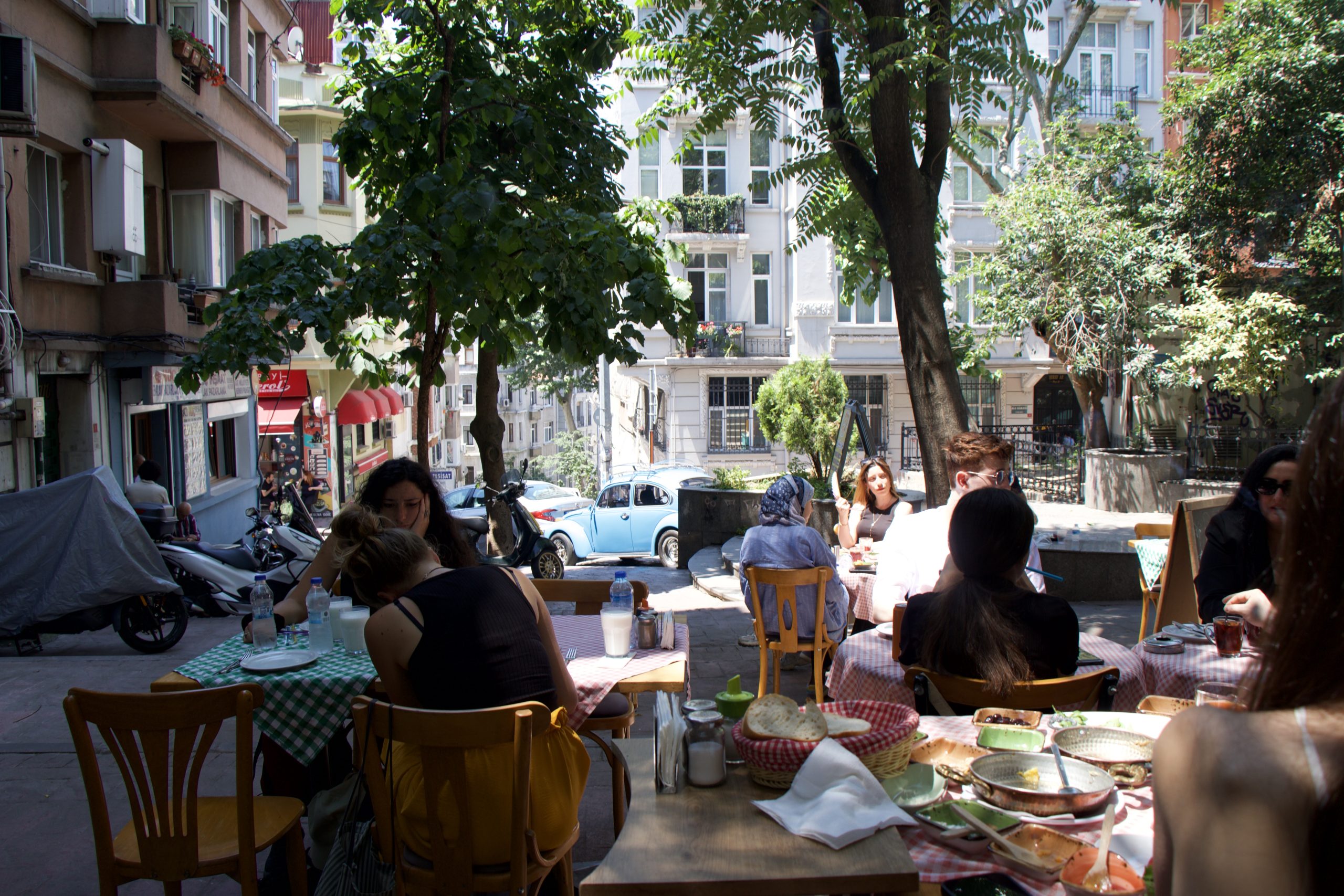
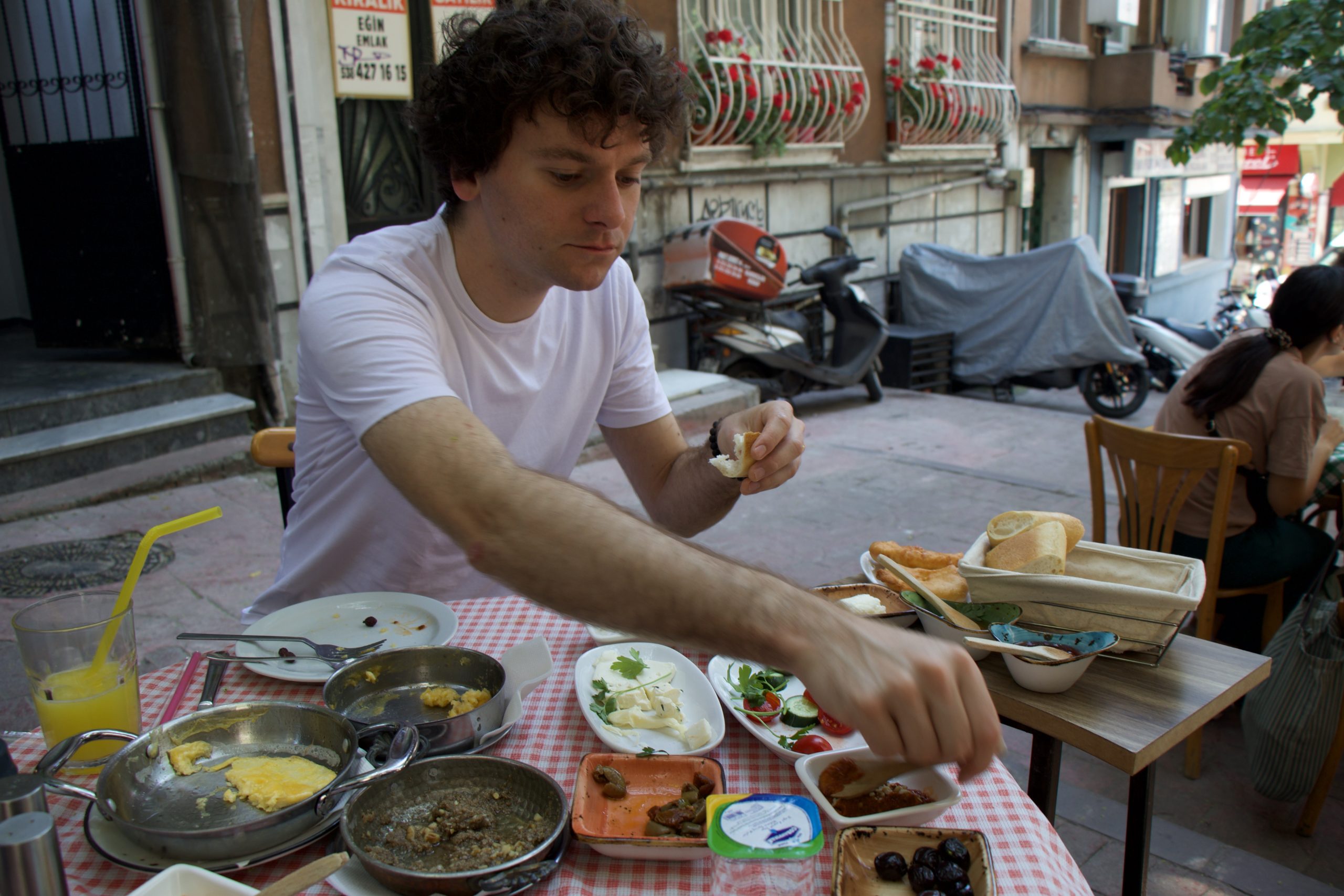
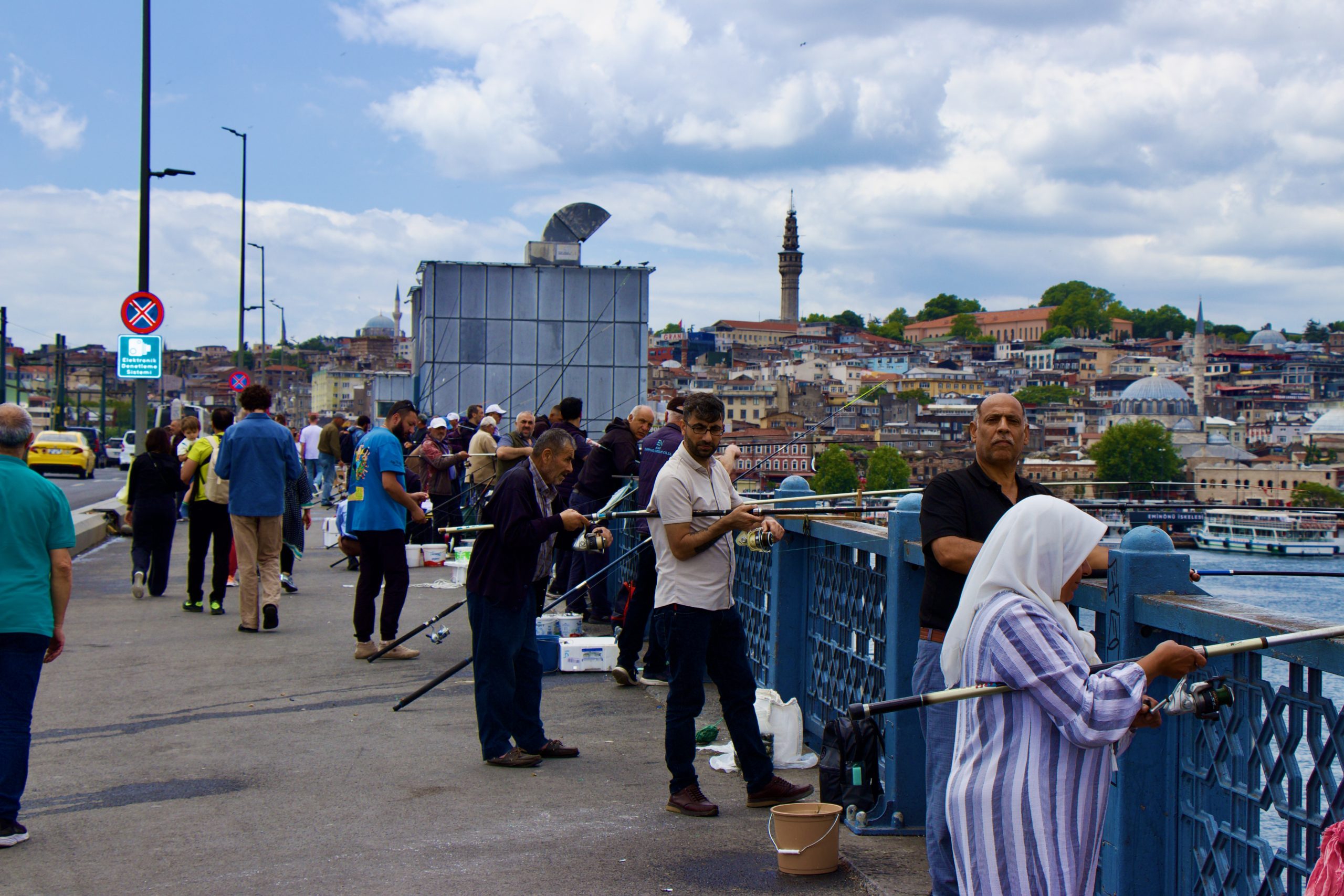
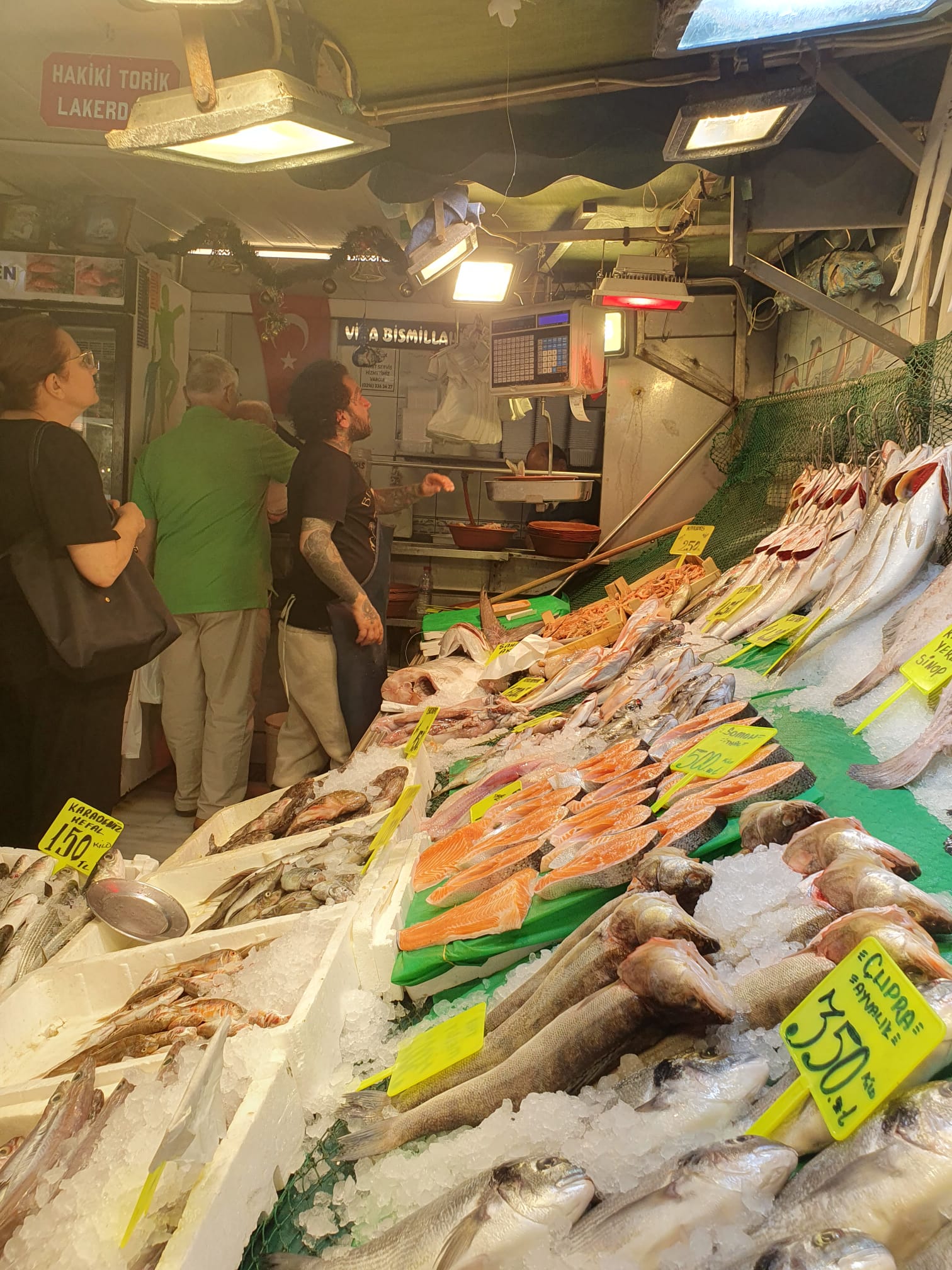
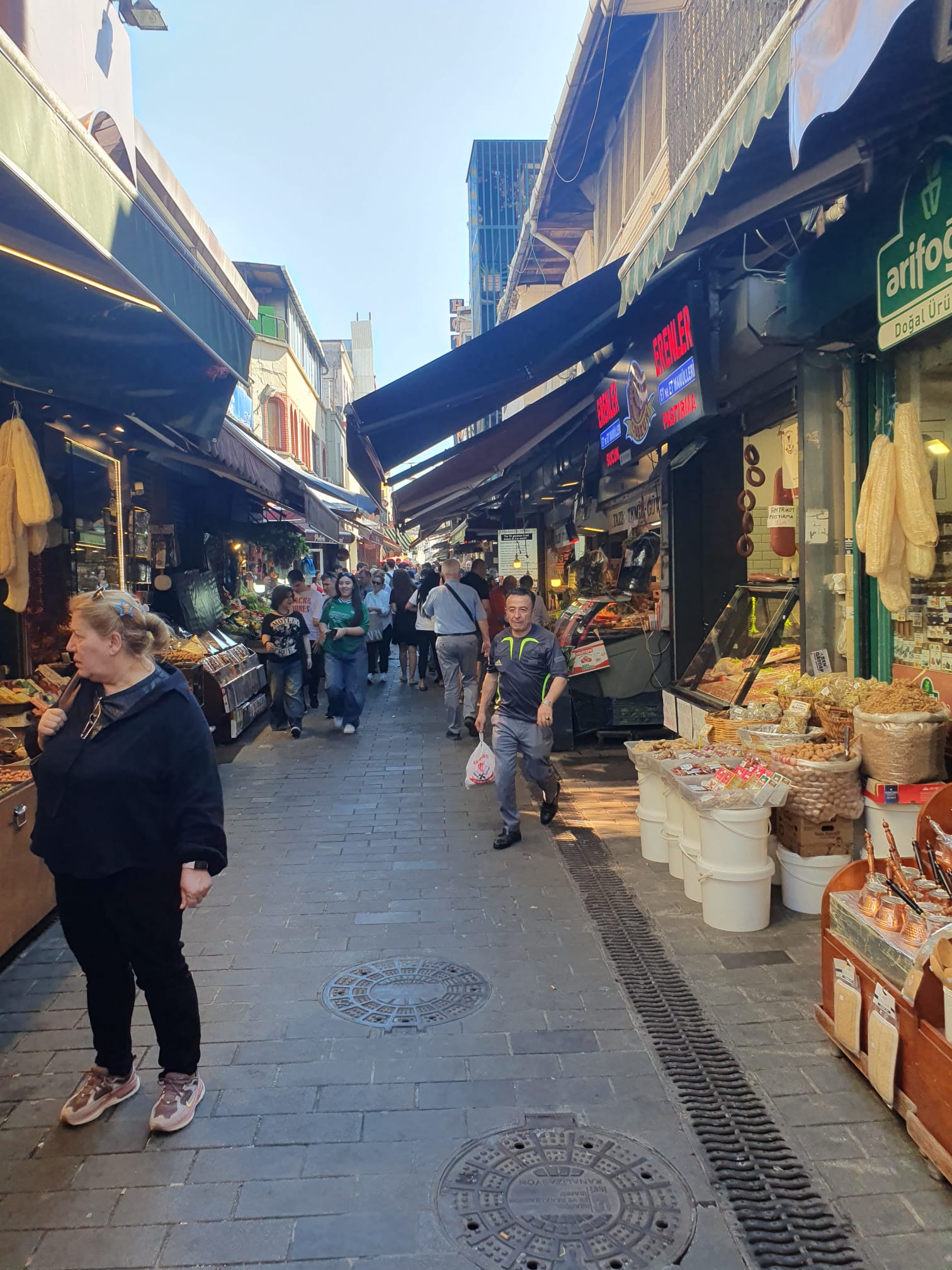
The Inviting Atmosphere of Meyhanes
Meyhanes, characterized by warm lighting, traditional decor and traditional Turkish music, create an inviting atmosphere that draws people together. Yüksel describes these establishments as vibrant social hubs where conversations flow as freely as Raki, the traditional anise-flavored drink. Central to this experience is the culture of Meze, a variety of small dishes meant for sharing. Each dish, from hummus (a creamy dip from blended chipeas, tahini, olive oil, lemon juice and garlic), dolma (stuffed grape leaves mostly with rice, pine nuts and herbs) to cacık (a cold yogurt, cucumber dish similar to tzatziki), represents a
piece of Istanbul’s rich culture. Yüksel “I believe that historically, Meyhanes have served as melting pots, bringing together people from various ethnicities and social backgrounds. These establishments likely played a crucial role in fostering social cohesion and cultural exchange within our communities.” Yüksel emphasizes that in the cosmopolitan district of Beyoğlu, these taverns continue to be venues for cultural exchange and mutual understanding. Beyoğlu, known for its vibrant social scene and cultural diversity, embodies the spirit of the Meyhane, where Meze carries influences from Armenian, Greek, and Jewish culinary traditions. A night at a Meyhane is more than dining; it is a journey through time and taste, fostering extended conversations and deeper connections. Friends share stories, laugh, and often forge lifelong friendships over the continuous flow of Meze and Raki. Yüksel notes “This leisurely dining style is about nourishing the soul and strengthening social bonds.”
Memorable Interactions with Locals
One memorable night at Müşterek Meyhane, wich is a hidden gem in Beyoğlu, the place was alive with the sound of traditional Turkish music, while the guests drinked their Raki and enjoyed there meals. Among them were two Turkish men who had met in high school and maintained a close friendship for over 25 years. They had been coming to this particular Meyhane for more than 15 years, a testament to the special place it held in their lives.
As the night unfolded, a conversation with these men gave away what made Meyhanes so unique. They spoke passionately about the dishes, the traditional music, and the sense of camaraderie. “It’s the like-minded people and the atmosphere.” they explained: “Everyone here wants to talk and enjoy each other’s company.”

Two friends who have been visiting Müşterek Meyhane for over 25 years.
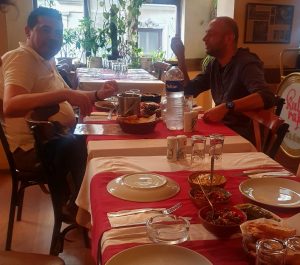
Their words were confirmed when a nearby table caught the eye with an appealing dish. A simple comment about how delicious it looked led to an invitation to come and have a taste. This gesture of sharing food, they explained, was a hallmark of the Meyhane experience, underscore the communal spirit that made these evenings so special. The night was not just about eating and drinking; it was about connecting, sharing, and celebrating life together.
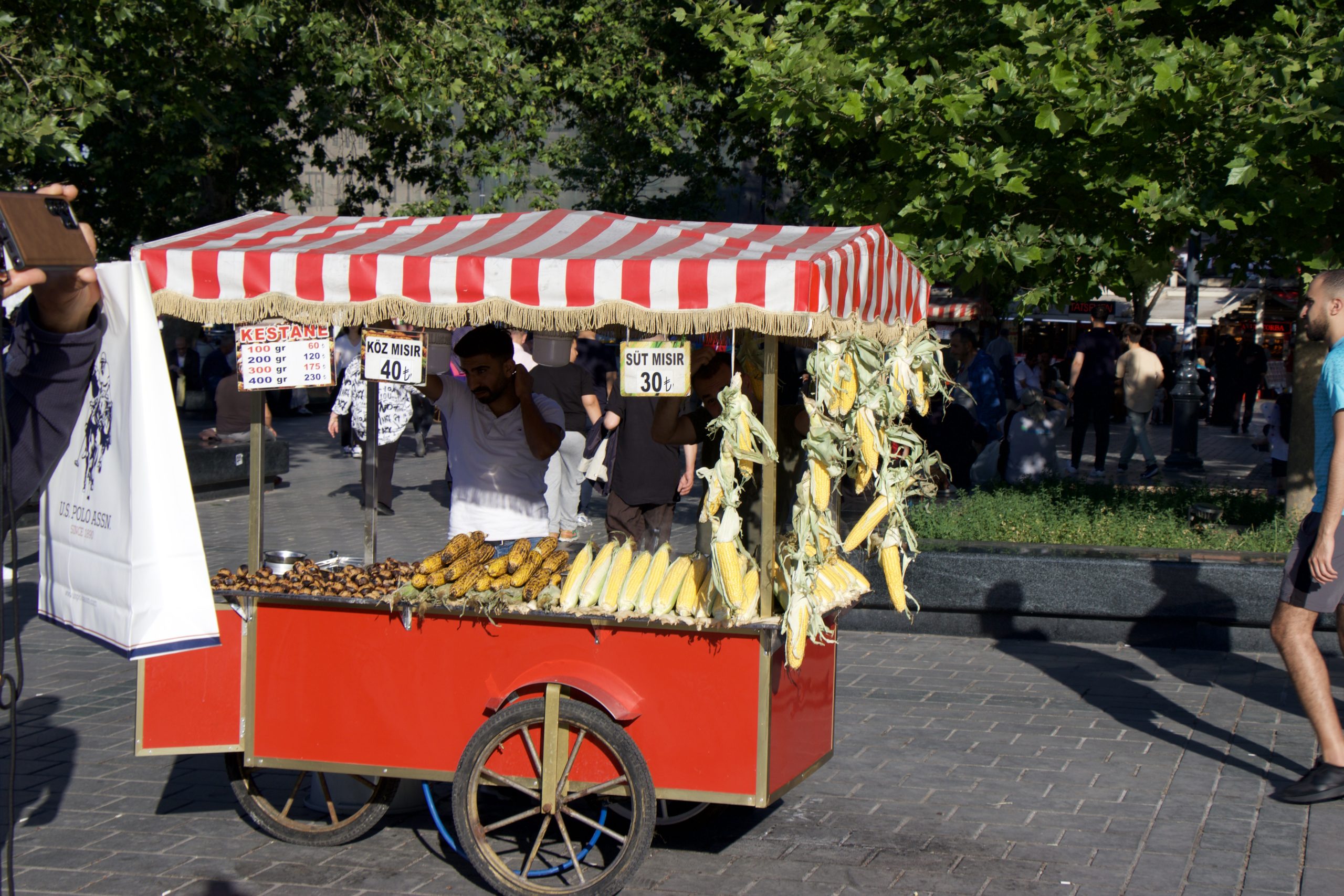
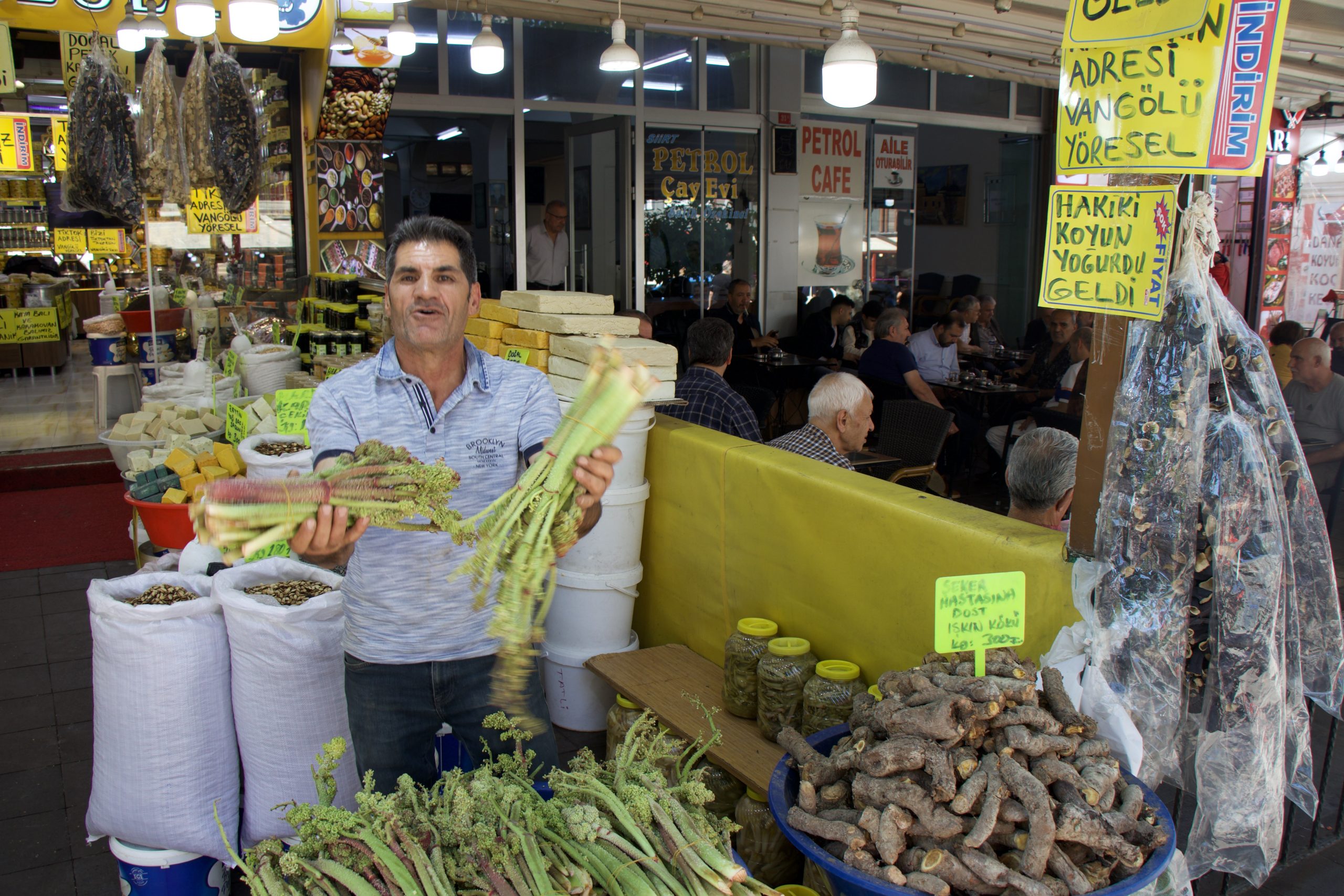
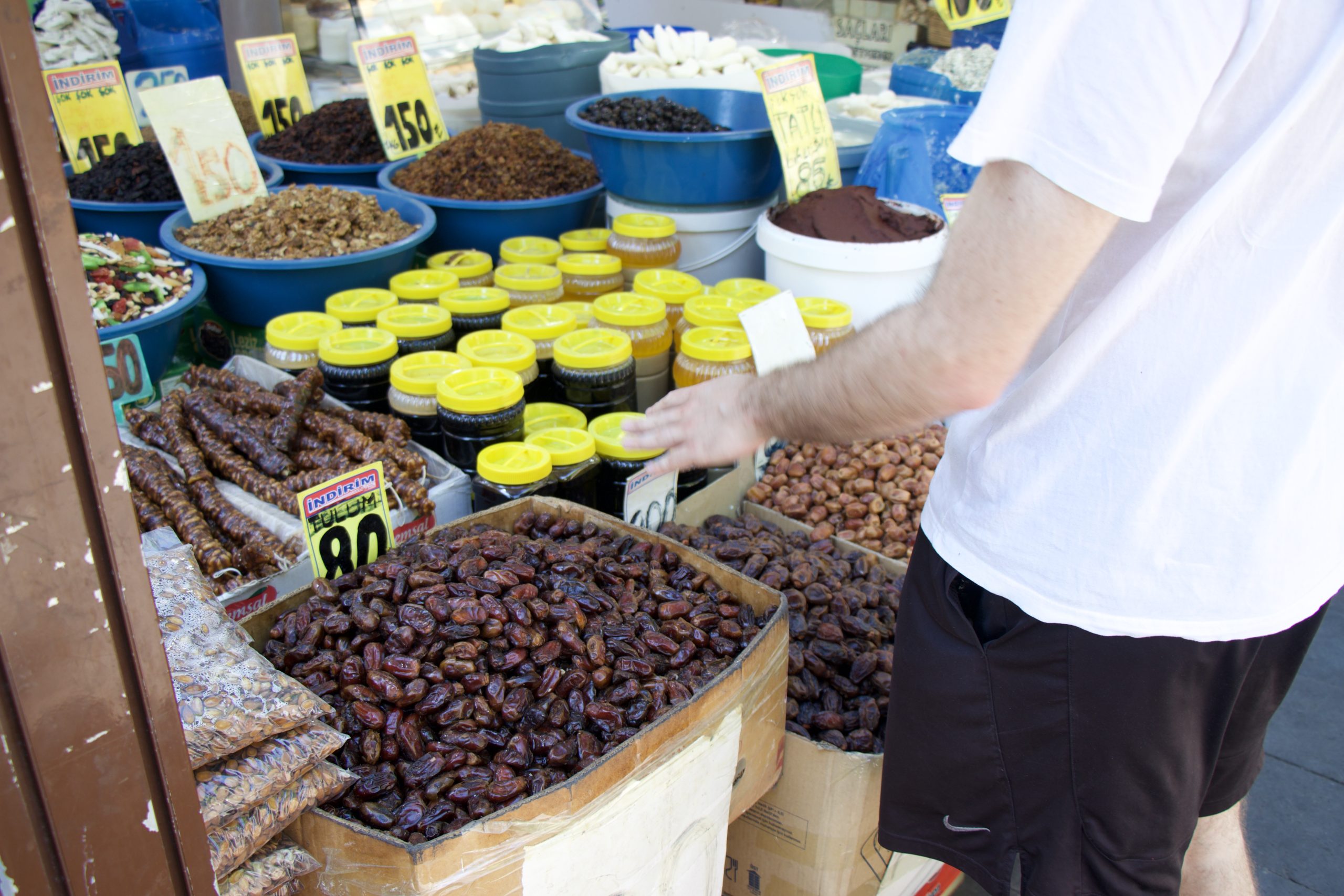
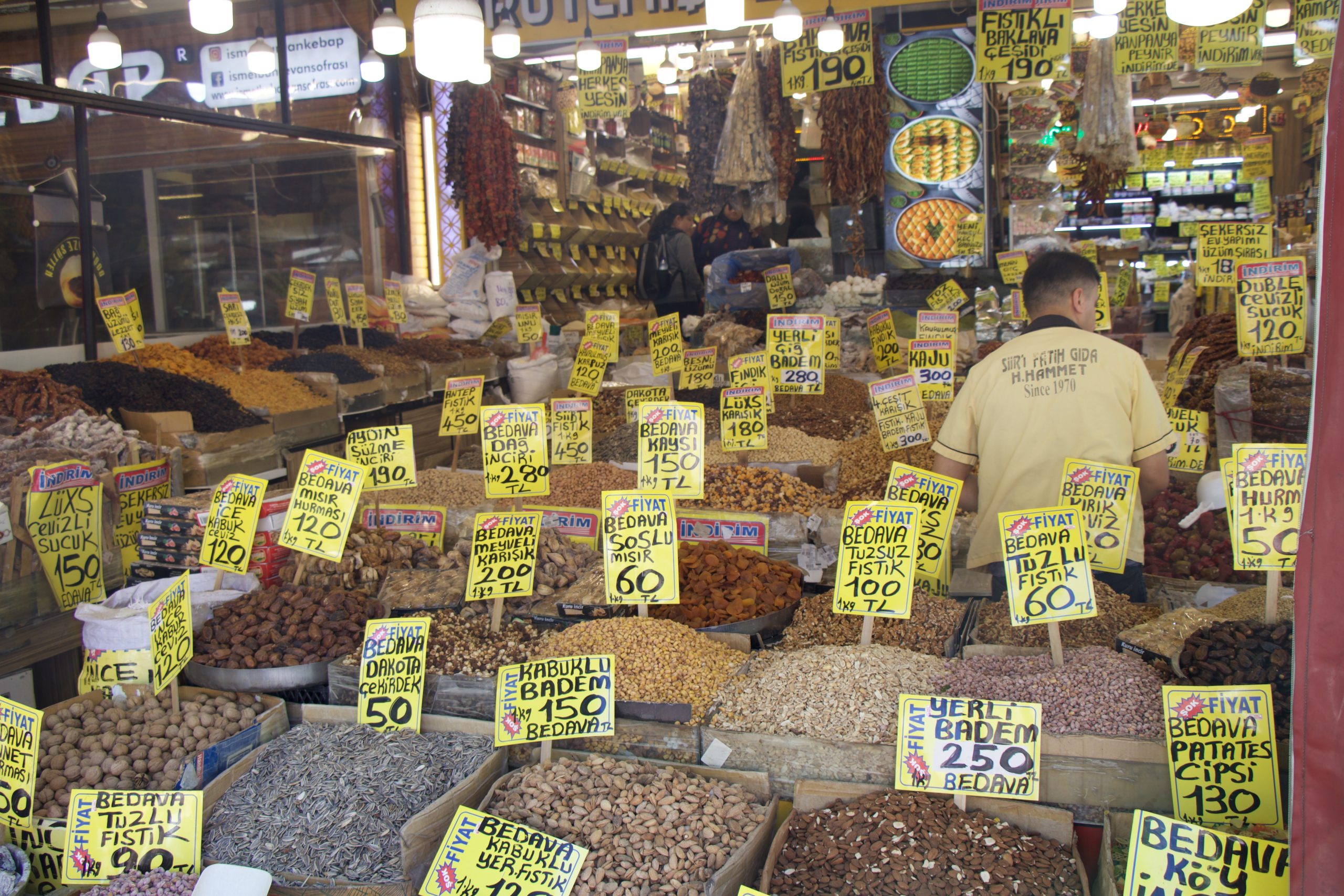
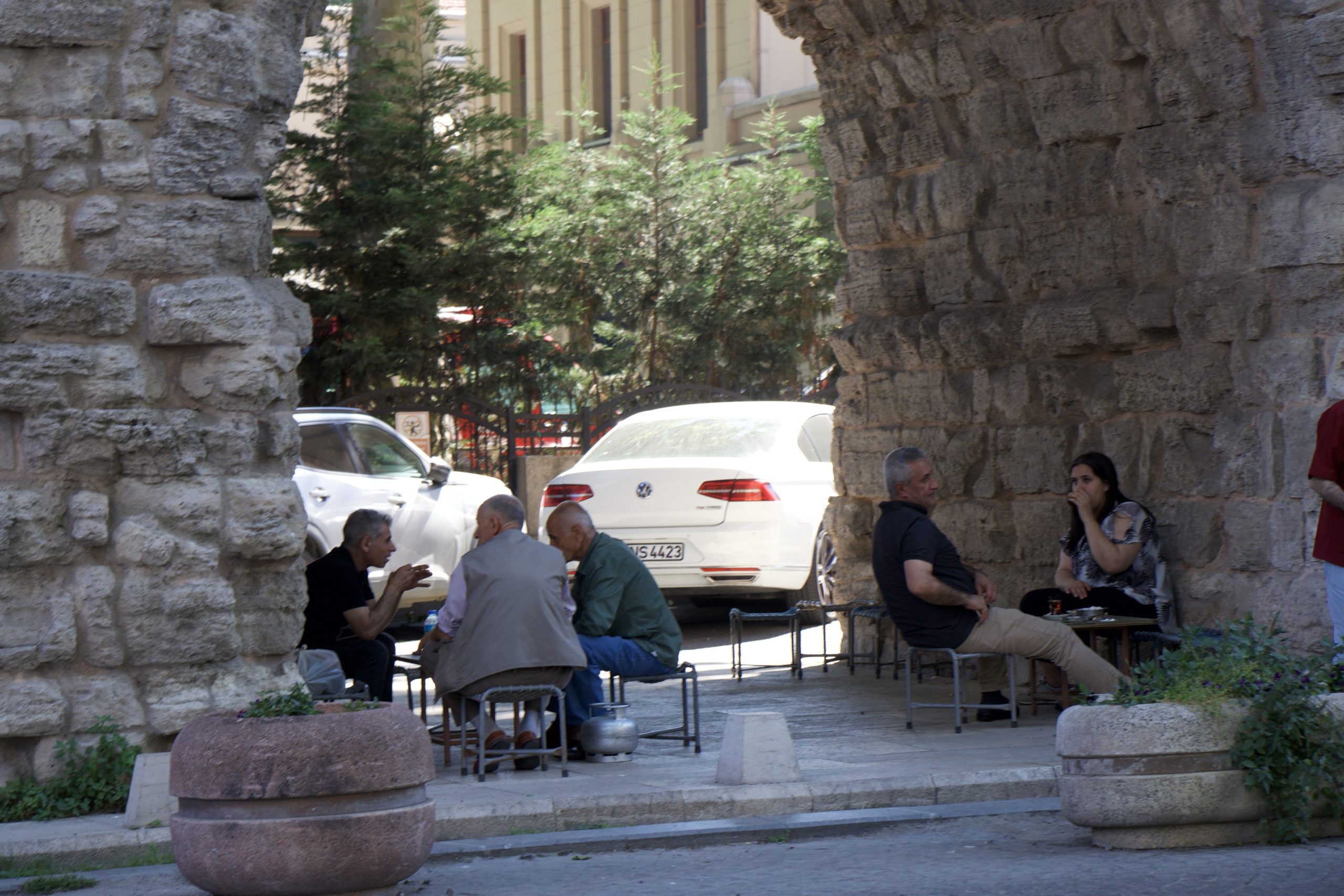
The Social Glue of Food
Susan Rottmann, an American anthropologist specializing in migration, gender, and the anthropology of food at Özyegin University, underscores the significance of food in bringing people together and fostering connections between different groups and cultures. She highlights that food is, besides a biological necessity also a profound social instrument. During the pandemic, the absence of communal dining underscored how much people miss eating together, which is crucial for happiness and social interaction. Rottmann adds that food acts as a social glue in various contexts, such as weddings, festivals, holidays, and rituals. It’s an activity first experienced in the home, then in schools, workplaces, and social gatherings. Within Turkey the act of sharing meals is deeply ingrained in their culture, sharing food is a common way to build and strengthen social bonds. Reflecting on different food cultures, Rottmann adds that for instance Americans focus on health and speed, while Turks emphasize communal dining and enjoying meals, fostering a strong sense of community and family.
The Evolution of Mezes with Chef Mari Esgici
Chef Mari Esgici adds depth to this rich tradition. Beginning her culinary journey at 18, she has spent over 15 years running a Meyhane. Her experiences reflect the evolution of Mezes, influenced by Armenian, Greek, Kurdish, and Turkish cuisines, while incorporating contemporary ingredients. Her diverse kitchen team, consisting of four Armenians, two Jewish individuals, and two Turkish Muslims, this exemplifies the inclusivity of Meyhane culture, promoting communal harmony. Mari believes food plays a crucial role in bridging cultural gaps and enhancing mutual understanding among different ethnic groups. However, she remains skeptical that food alone can resolve deeper political and social tensions, such as those involving Syrian refugees.
Rottmann adds to this that many non-governmental organization and civil society organizations in Turkey attempt to use shared meals to foster understanding between Turks and Syrians. While these initiatives have had some success, the tense political environment complicates the process. “The economic situation and misinformation in the media also contribute to the challenges of integrating Syrian refugees,” she notes.
Supporting Research
research from Jaafar and colleagues (2022) on Malaysian food culture highlights how communal dining acts as an identity marker, fostering social cohesion much like the Meyhanes of Istanbul. Their research illustrates that communal dining traditions in Malaysia, much like those in Turkey, are not merely about food consumption but are pivotal in establishing and reinforcing social bonds within communities. These gatherings serve as opportunities for individuals to connect, share experiences, and strengthen their cultural identity. In the context of Meyhanes, this parallels the way Turkish people from diverse backgrounds come together to share Meze and Raki, creating a shared cultural experience that transcends individual differences.
Similarly, Raza (2023) emphasizes the cultural significance of food in various societies, noting that communal dining often bridges cultural divides and fosters understanding. Raza’s study delves into how food acts as a universal language, breaking down barriers and facilitating dialogue between different cultural groups. In many societies, the act of sharing a meal is seen as a gesture of goodwill and friendship, promoting inclusivity and empathy.
Vital Role of Meyhanes and Meze
Yüksel’s insights, coupled with Rottmann’s and Esgici’s reflections, show the vital role Meyhanes and Meze play in Istanbul. Meyhanes offer a unique space for people to come together, share their lives, and celebrate their common humanity. However, it’s important to note that conservative Muslims may not partake due to the association with drinking Raki.
Economic Challenges and Social Bonding
Locals also noted the rising prices, which have made Meyhanes less accessible for those earning an average wage. According to the Turkish Statistical Institute, the average annual income in Istanbul is $17,349. Dining at a ‘Meyhane’ on average costs about $35 per person, which is quite high relative to the annual income. This price surge is due to an 80% inflation rate, making it unaffordable for the average resident (Source: Turkish Statistical Institute). Where once these establishments were places where people from all social layers met, economic constraints now limit their accessibility.
Historical Context and rituals of Meyhanes
In addition to these insights, the historical context of Meyhanes adds another layer of understanding to their significance. Originally established during the Ottoman Empire, Meyhanes were primarily run by Greeks and Armenians, whose culinary traditions deeply influenced the food culture in Istanbul. Over time, these establishments became integral to the social fabric, serving as gathering places for people of all backgrounds. The cultural significance of Raki, often called “lion’s milk,” is also worth noting. Drinking Raki is more than just consumption; it’s a ritual that embodies the warm and social atmosphere of Meyhanes. The process of mixing Raki with water and ice, turning the clear liquid milky white, is a traditional practice.
Adapting Meyhane Culture for Global Community Building
The Meyhane culture in Istanbul offers valuable lessons for fostering community and cultural integration on a global scale. One key aspect is the emphasis on communal dining to strengthen social bonds. As Susan Rotman explained, in the fast-paced modern lifestyle, taking the time to share meals with family, friends, and even strangers can significantly enhance social cohesion and create a more inclusive society.
Embracing a culture that prioritizes slow, shared meals can help bridge cultural divides in various communities worldwide. Just as Meyhanes once served as melting pots of diverse backgrounds in Istanbul, similar communal dining spaces can encourage people from different cultures to come together, share their stories, and learn from one another. This practice can foster greater mutual understanding and appreciation for different cultural traditions.
Moreover, people everywhere can learn from the inclusive and generous spirit observed in Meyhanes. The willingness to share food and drinks, and the practice of inviting others to taste and enjoy together, can be powerful tools for building community. By adopting these practices, communities around the world can create environments that value connection and inclusivity.
Preserving Communal Dining Traditions
Despite the modern challenges, Meyhanes continue to thrive as places of cultural integration and social bonding. They represent the diversity Istanbul offers, where shared meals and conversations foster a sense of community.
Through the lens of food and communal dining, the stories from Meyhanes in Beyoğlu illustrate the power of shared experiences in promoting greater cultural understanding and integration. These spaces, filled with the sounds of traditional music and the clinking of Raki glasses, offer a glimpse into the heart of Istanbul’s rich and diverse cultural heritage.

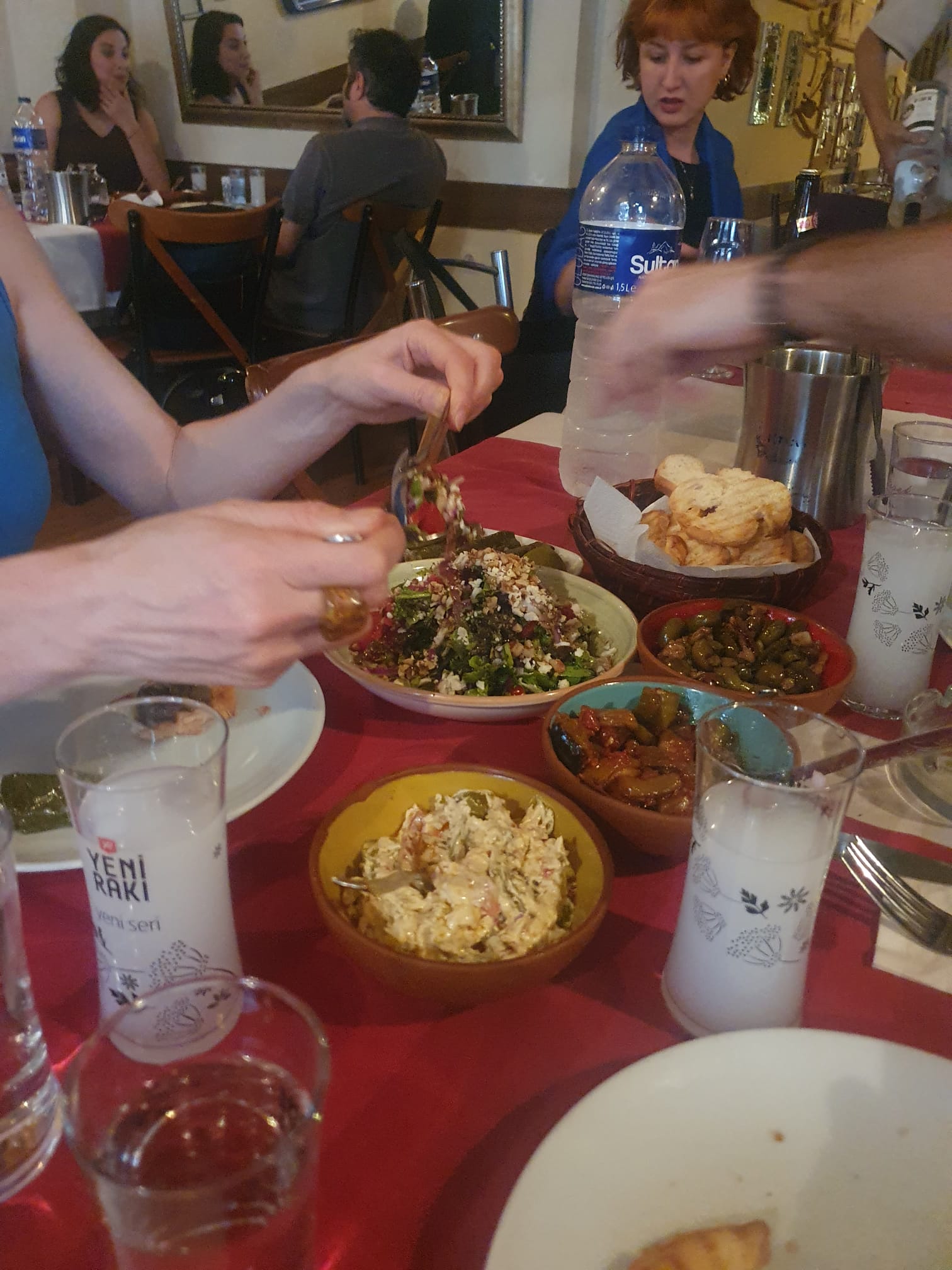
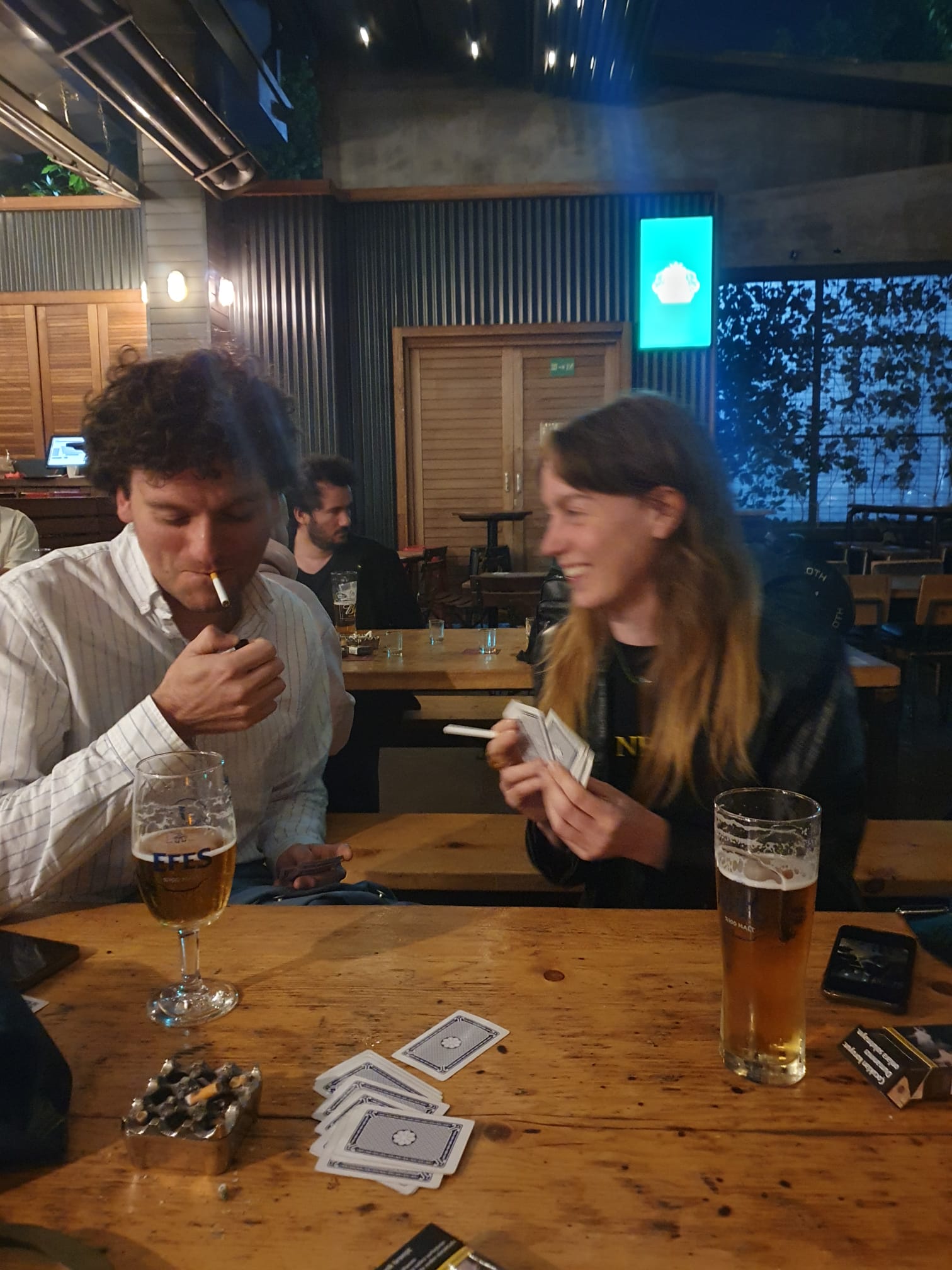
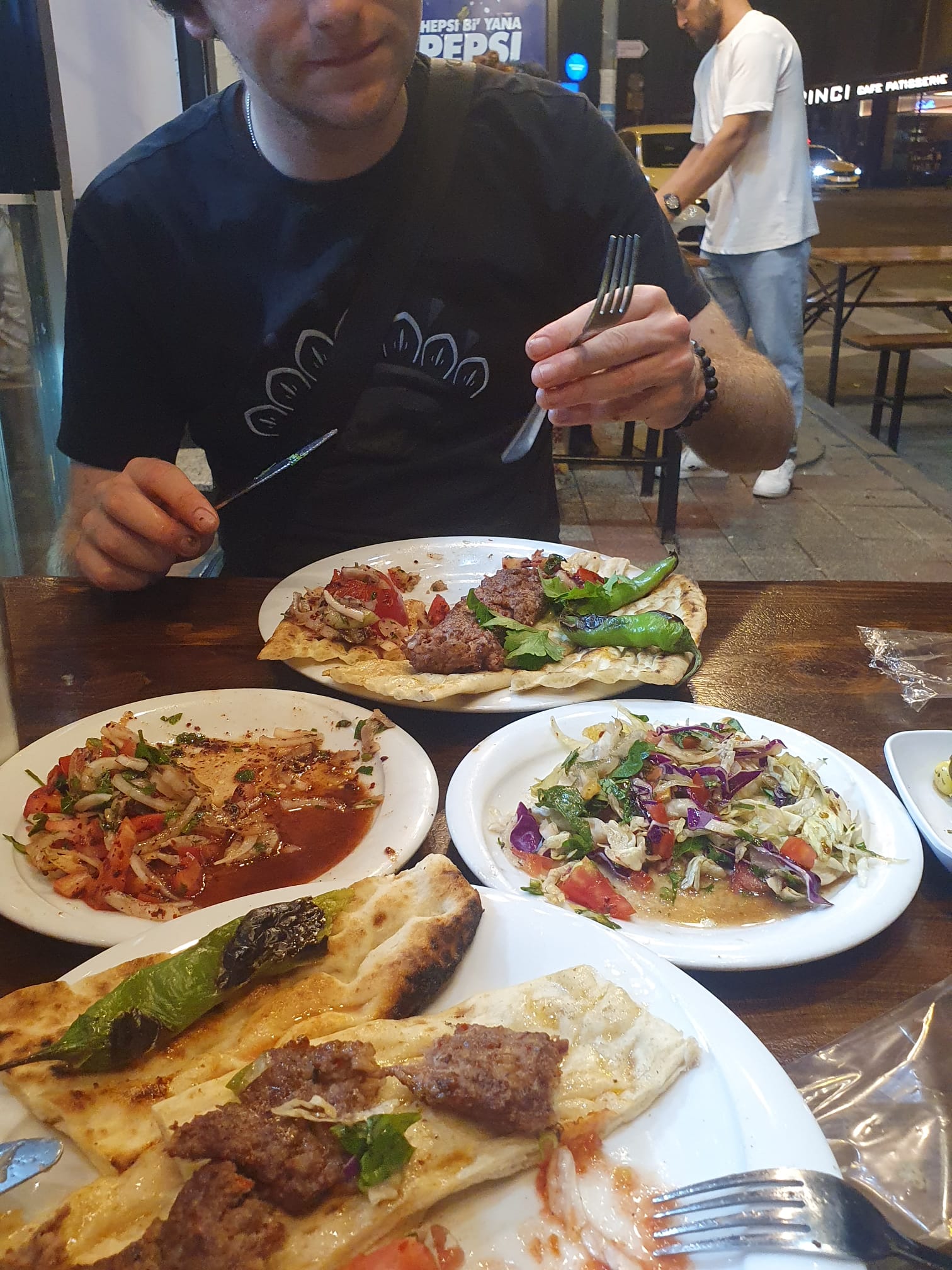
*This article was written in Dutch and has been translated into English using ChatGPT



